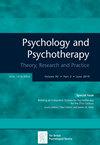The mediating effect of social network sites addiction on the relationship between childhood psychological abuse and depression in college students and the moderating effect of psychological flexibility
Abstract
Background
Experience of child psychological abuse in college students is likely to increase their risk of depression, but the potential psychological mechanisms between the two require further exploration. This study supplemented the risk and protective factors between child psychological abuse and depression in college students by introducing social network sites addiction (SNSA) as a mediating factor and psychological flexibility as a moderating factor.
Methods
A cross-sectional survey was conducted on 655 college students from two universities in Hunan Province, China. Self-reported measures included childhood psychological abuse, depression, SNSA, and psychological flexibility. Descriptive and correlational analyses were performed on these variables, followed by the establishment of a structural equation model.
Results
Child psychological abuse was positively associated with depression (r = .507, p < .001) and SNSA (r = .208, p < .001) in college students and negatively associated with psychological flexibility (r = −.293, p < .001). SNSA played a mediating role between childhood psychological abuse and depression (β = .170, SE = 0.035, p < .001) in college students, while psychological flexibility attenuated the strength of the relationship between the latter two (β = −.095, SE = 0.031, p < .01).
Conclusion
The study further elucidates the psychological mechanisms underlying the relationship between childhood psychological abuse and depression in college students. SNSA may mediate the relationship between the two, while psychological flexibility may buffer the strength of the relationship between them. Future research should explore interventions enhancing college students' psychological flexibility after childhood psychological abuse to cut the risk of depression.


 求助内容:
求助内容: 应助结果提醒方式:
应助结果提醒方式:


